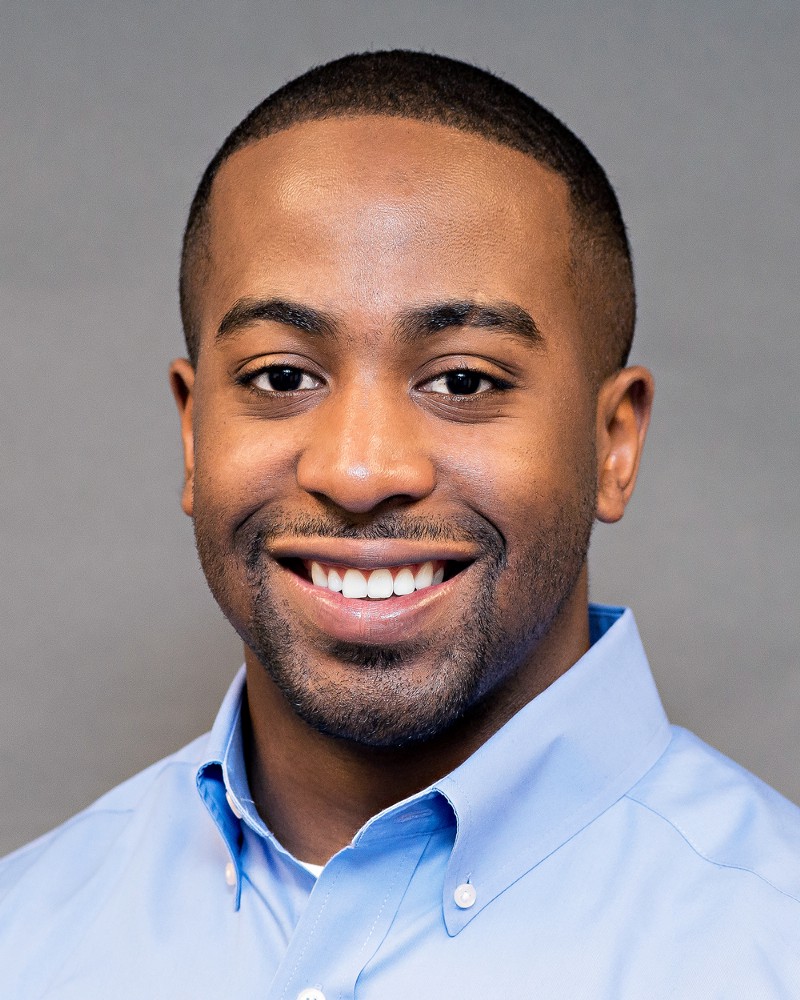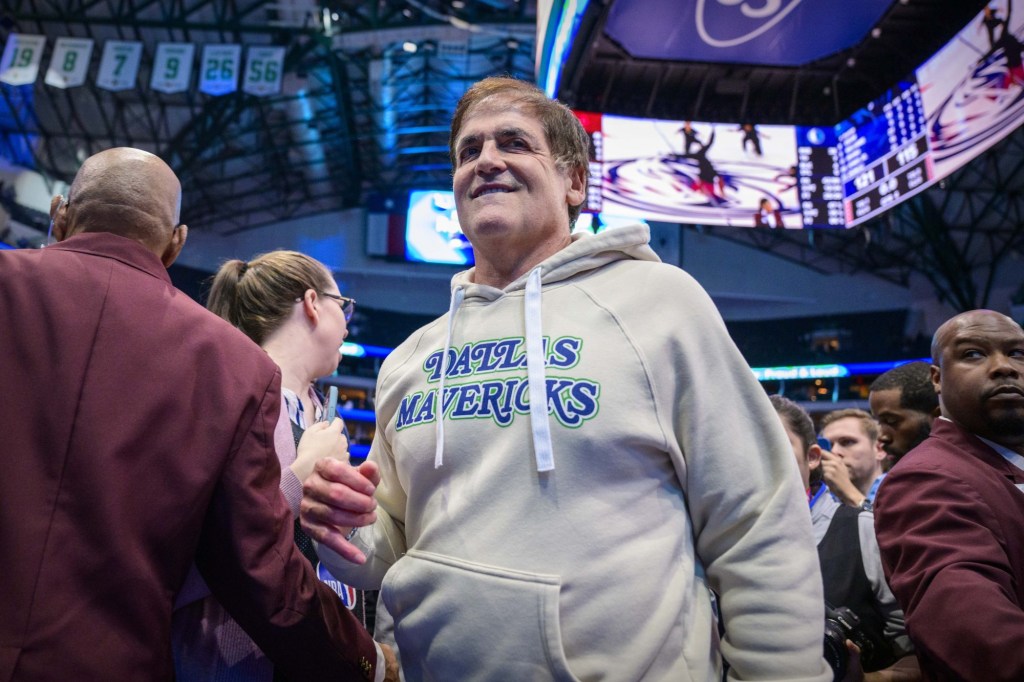By: Chase McCaskill, @itsmechase

“Everything is performed at a championship level. No excuses.”
Front Office Sports had the opportunity to speak with one of its own, Will Baggett, the man behind our 4-part series entitled The Process. Fortunately for us, The Process was just a window peering into Will’s new book entitled The Blueprint: Laying the Foundation for a Successful Career, which is scheduled for release in May 2016. The book is written in a format unique to the industry, comparing Will’s ideals on career development with that of his tenured mentor Tai M. Brown (AFCA), successfully balancing two sides of the equation to career success. It is in this interview that Will delves into the nitty-gritty of the importance of entry-level professional development at a greater magnitude.
But who is Will Baggett?
Will currently serves as Coordinator of Strategic Brand Management for IMG, where he works to enhance and protect the brand equity of collegiate institutions. However, Will’s journey has been one with twists and turns. After receiving his undergraduate degree in Exercise Science from Ole Miss, Will pursued a post-graduate degree in Sport Management from Baylor University. He worked as a Graduate Assistant for the American Football Coaches Association (AFCA) while simultaneously serving as a Baylor Athletic Performance coach. He founded the Baylor Sport Management Association and was later named the 2014 Outstanding Graduate in Sport Management. “I lacked vital, practical experience in sport management, so it was imperative to expose myself to as many aspects of the industry as possible. The opportunity to work for AFCA while pursuing a Master’s Degree afforded me the pertinent work experience I was seeking.” Following graduation from Baylor, Will transitioned to a football operations internship with the Chick-fil-A Peach Bowl, which then led to his current position at IMG working in Strategic Brand Management.
What is Strategic Brand Management?
Collegiate institutions each have distinct intellectual property they license to companies to generate revenue via royalties (e.g. the school logo). “What I do at IMG is help pair best-in-class licensees with premier institutions to form successful, profitable partnerships. In this way, we ensure the top manufacturers are competing against one another and aren’t being undercut by companies producing low-quality products.” The goal of Strategic Brand Management is to elevate the value of partner institutions’ brands. Simply put, you shouldn’t be able to walk into every local dollar store and truck stop only to find your school’s logo for sale on any type of paraphernalia. “While we are cognizant of the varying socioeconomic niches which need to be serviced, a lack of product differentiation serves to devalue an institution’s indicia. We are charged with protecting against that.”
The Importance of Entry-Level Professional Development
Consistent with his third installment of The Process, one’s career must be built upon a solid foundation. When Will was younger, his father would take him out to his construction sites. As they prepared each lot for the concrete foundation, his dad would always say, “If we don’t get the foundation right, we won’t be able to build upon it.” Entry-level positions allow for you to lay your own foundation for a long, successful career- hence the title of the book. It is here where you develop the skills and habits which will determine your career trajectory thereafter.
You often hear people say, “If I knew then what I know now…” however, Will believes this is geared more towards a mental paradigm rather than a reference to practical skills. “Make no mistake; there is no substitute for on-the-job experience. However, my research has shown that seasoned professionals lacking the necessary vigor, care, and attention to detail failed to adopt the proper mindset from the outset.” For example, Will alluded to a 40-yard dash, “In sprinting, your start is where you earn your money.” Just like a 40-yard dash, a weak career start doesn’t mean you’ll clock a bad time, but it does mean you probably won’t record a personal record.
Habitual Excellence
Now obviously, a personal record doesn’t happen overnight, nor does it happen over a few weeks. Establishing a standard of excellence takes consistent hard work; it takes the rugged tasks necessary to achieve your goals through cultivating habits of excellence. So how do you practice daily excellence as a Hab1t in your own career? “Excellence is neither contextual nor situational. For example, when I was an athletic performance coach, everything we did was to be performed at a championship level. Heck, we were expected to tie our shoes at a high level. As Coach Kaz Kazadi always says, ‘You can be good by accident; greatness is on purpose. You play the way you practice.’” If you desire to be great in your career, if you wish to achieve your greatest goals, excellence must become standard operating procedure the minute your feet hit the floor in the morning.
An Ode to Mentorship
Will’s journey has been one dedicated and devoted to mentorship. “Without Tai’s mentorship, I would still be stocking groceries at Wal-Mart as I did throughout my undergraduate career.” According to Will, the mentoring he’s received hasn’t been half-hearted. His journey has been a step-by-step process with him and his mentor walking in cadence. “My mentor wanted to ensure I began my career with all the tools and relationships he now has at the mid-point of his career. I won’t attend any sport-based function without first asking him: Who do we know here?” Will made it clear that mentorship is a symbiotic relationship. As a mentee, you must offer your mentor workable clay to mold. You must bring fabric to the cutting table that a mentor can help shape into a professional work of art.
However, keep in mind that you are a representative of your mentor at all times. Any misstep or lack of judgment can reflect poorly on yourself and those you represent. Will referenced his book saying, “In The Blueprint, we discuss this concept in terms of you sporting an abstract jersey with your mentor’s name stitched on the back of it. You don’t want your mentor’s name called out over the loudspeaker for sub-par performance.”
Giving Back
We asked Will to imagine he was 20 years into his professional career. And as the creator of our series “The Process,” we asked him to imagine writing a follow-up piece on his initial work. What would be the topic of the article you would add with a little bit of professional tenure under your belt? “Put it back in the bucket. By that time, you will have amassed substantial career capital and formed many relationships. Now it’s time to reach back and pull the next person up. I strive to actively practice this whenever possible, but the onus to do so and more will increase with growth.” Ralph Waldo Emerson is credited with saying, “Be an opener of doors for such as come after you.” It is our job to set the doorstopper and usher in the next group of rising professionals that will further prosper our profession.
Parting Wisdom
“Be where you are. We are a hungry generation. There is nothing wrong with being ambitious, but if you lose focus on operating at a high level in your current position, you will inadvertently detract from your work performance. The beauty of the process is unpredictability. It’s that uncertainty that keeps you striving for excellence. You have to fall in love with it.”
You can follow Will on Twitter here or connect with him on LinkedIn here.
Also — If you haven’t had the chance, check out his four part series! (Part One, Part Two, Part Three, Part Four).
This interview is another edition of “Winning Edge Wednesday” in congruence with our partnership with the Winning Edge Leadership Academy. Every Wednesday we will be featuring the story of a woman or minority working in the sports business industry.If you know of a professional you would like featured, drop us a line at russ@frontofficesports.org.

















